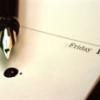What is Ink made of?
-
Forum Statistics
355.1k
Total Topics4.6m
Total Posts -
Member Statistics
128,227
Total Members18,857
Most OnlineNewest Member
fountainpe69
Joined -
Images
-
Albums
-
Pen Pics 3
- By K Singh,
- 0
- 0
- 23
-
4posts
- By Tashi_Tsering,
- 0
- 0
- 69
-
Post related
- By Penguincollector,
- 51
-
USG 8
- By USG,
- 0
- 0
- 68
-
Mechanical's Pens & Ink
- By Mechanical,
- 0
- 0
- 25
-


















.thumb.jpg.f07fa8de82f3c2bce9737ae64fbca314.jpg)



.thumb.jpg.331e554113c33fb39d5bf3233878978a.jpg)





Recommended Posts
Create an account or sign in to comment
You need to be a member in order to leave a comment
Create an account
Sign up for a new account in our community. It's easy!
Register a new accountSign in
Already have an account? Sign in here.
Sign In Now